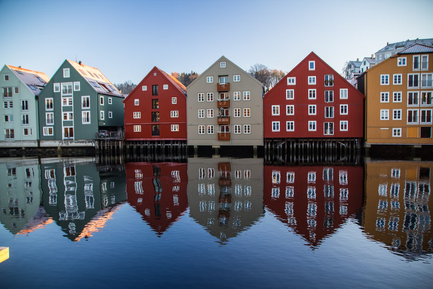
Apply to a foreign university with confidence
- Properly fulfilled documents
- Perfect motivation letter
- Support from a personal mentor
- Offers from several universities
Article score: 4.45 out of 5 (33 reviews)
Who are undergraduates? In this article we provide the most important information about the first stage of higher education: what does it mean, what types exist, how much it costs abroad and how the learning process looks like.
Free consultation




Bachelor’s degree is the first cycle of higher education in countries with the Bologna system. When talking about higher education, most often the bachelor’s degree is meant. Master's and doctoral are considered to be graduate and postgraduate.
The bachelor's program is designed for secondary school graduates who want to get higher education in a particular specialty. A bachelor's degree is determined by the number of academic hours. They are usually measured in academic credits (ECTS), where 1 credit is equal to 25-30 academic hours depending on the country. To get a bachelor’s diploma, you need to acquire 180-240 ECTS during the entire study period. Studying at the bachelor’s cycle will take 3-4 years, with the exception of medical and legal specialties, where studies last for 5-6 years.
There are several variations of bachelor’s degrees. On university websites, abbreviations such as BA, BSc, BAS, BFA, and others can be placed next to the name of the educational program. They indicate the type of undergraduate. The most common types are:
| Popularity | Title | Abbreviation | Duration |
|---|---|---|---|
| 10.40% | Bachelor of Science | BSc | 3-4 years |
| 8.83% | Bachelor of Arts | BA | 3-4 years |
| 6.37% | Bachelor of Business Administration | BBA, BBA | 3-4 years |
| 4.31% | Bachelor of Engineering | BEng | 3-5 years |
| 2.55% | Bachelor of Education | BEd | 3-4 years |
| 1.71% | Bachelor of Law | LLB | 3-4 years |
| 1.26% | Bachelor of Nursing | BN, BSN, BScN, BSc Nursing | 3-4 years |
| 1.22% | Bachelor of Computer Science | BCompSc, BCS, BS CS | 3-4 years |
| 1.12% | Bachelor of Medicine | BM, BMed | 5-6 years |

The minimum package of documents required for admission to bachelor's programs includes:
Depending on the country and the university itself, it also may be required to provide:
Before submitting documents to the university it is necessary to check whether the certificate of secondary education in the home country is equivalent to the one issued in the country of study. In countries such as Germany, Norway, and Japan, the certificate of 11 years of school does not allow students to go to university right away. In this case, the applicant can resort to one of the options below:
The evaluation of applicants at a university can be done with a GPA stated in a secondary education certificate or as a result of entrance examinations. The format of the tests depends on the country: the exam can be a written work, a test, or an interview.
Each country has its own special educational atmosphere, which may or may not appeal to a foreign student. Despite this, two main types of the educational process at the bachelor’s cycle can be identified:
Many universities provide an opportunity to simultaneously study in two bachelor's specialties (Joint Degree), which allows them to obtain two bachelor's degrees (for example, a bachelor of education in technical sciences) after graduation.

Tuition fees vary dramatically. Taking into account many factors, in 2018, the most expensive countries for obtaining a diploma were the USA, New Zealand, Australia, Canada, Great Britain, and Hong Kong[1]. Cheaper education can be obtained in Hungary, Poland, India, and other countries. In some states, for example, in France, Germany, and Sweden, higher education is absolutely free even for foreigners (students pay only the application fee, which is about 169 USD).
The applicant has the opportunity to receive a scholarship, which often covers the costs of not only training but also of living in the country. Student financial assistance can be provided by the government, public organizations, or even the university itself. Also, in some countries, for example, in the USA and Norway, it is possible to take a student loan from the state, which subsequently needs to be paid back (this process might take from a few years to a couple of decades).
The bachelor’s degree is quite enough to start a career. In many countries, the final year of study is student practice in large companies, which can last from two weeks to a whole semester, which gives the student the necessary work experience and helps him find a job after graduation. However, there are exceptions everywhere. For example, in France and Norway, a bachelor's degree will not allow you to reach incredible heights in your career. At some point, you will need to get a master's degree to further progress your career.
Master's is the second stage of higher education. It can be focused on research activities or on obtaining applied skills. Master programs last from one to two years. In most cases, the selection of applicants is based on a GPA of a diploma.

In order to receive more detailed recommendations on possible program options and entrance requirements, as well as to devise an admission plan, you can use our help when applying for bachelor's programs abroad. A list of services is available here.
60+ countries
we work with
$1,000,000 saved
by students through scholarships
6,400 offers
our students got